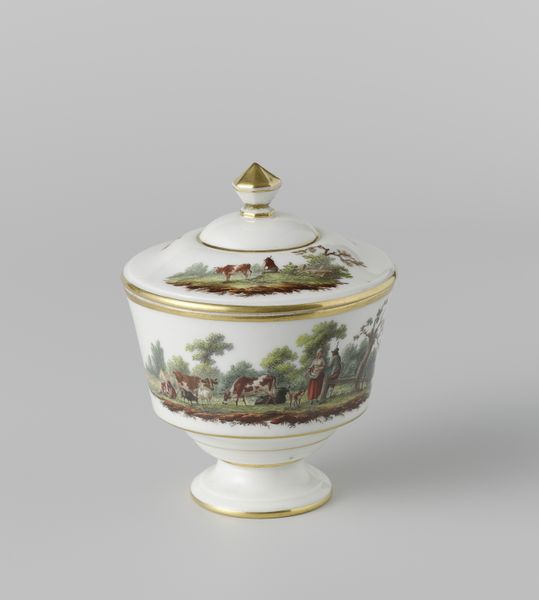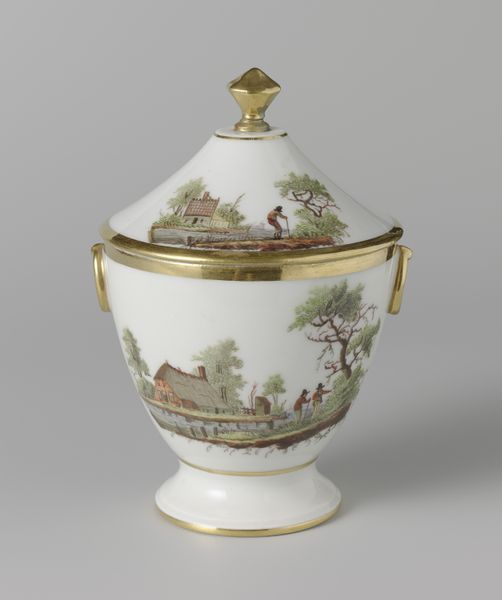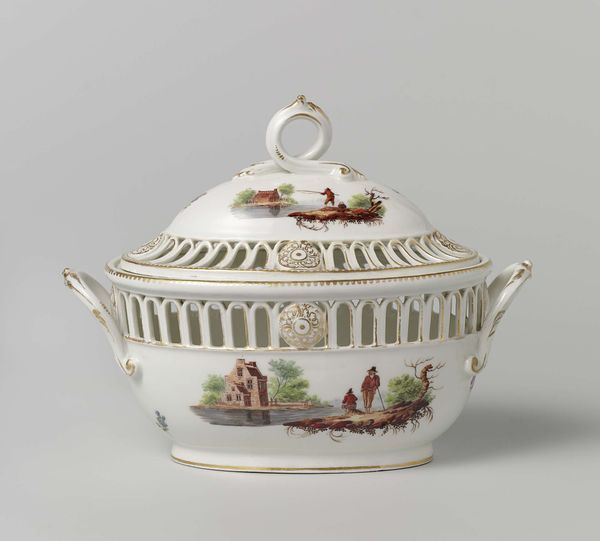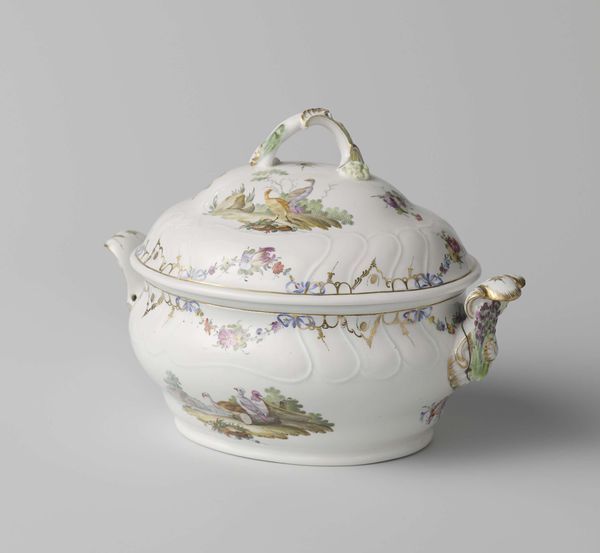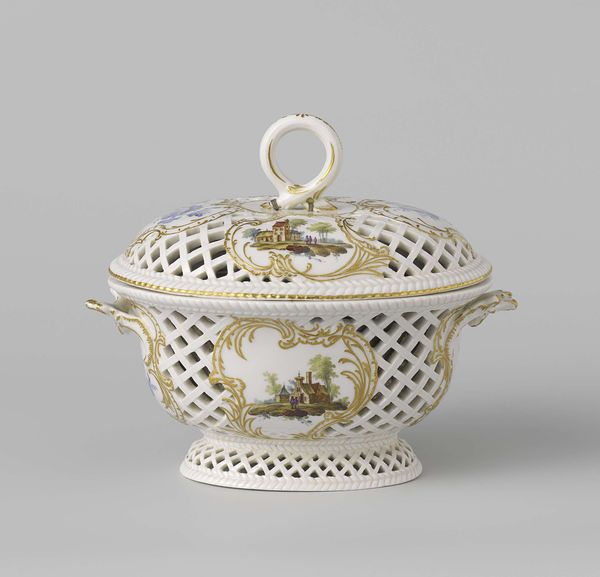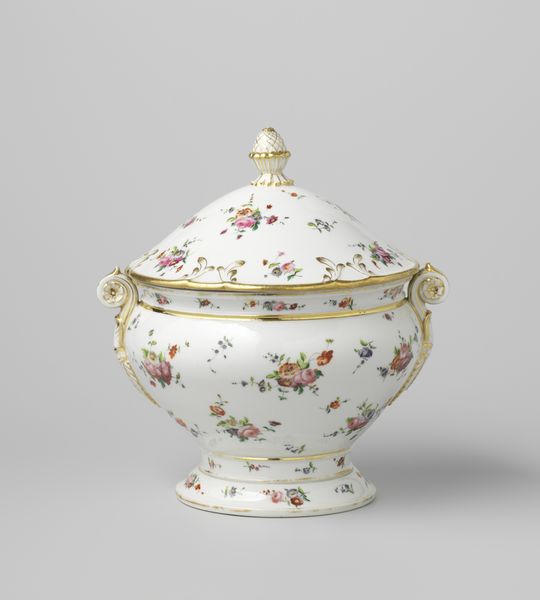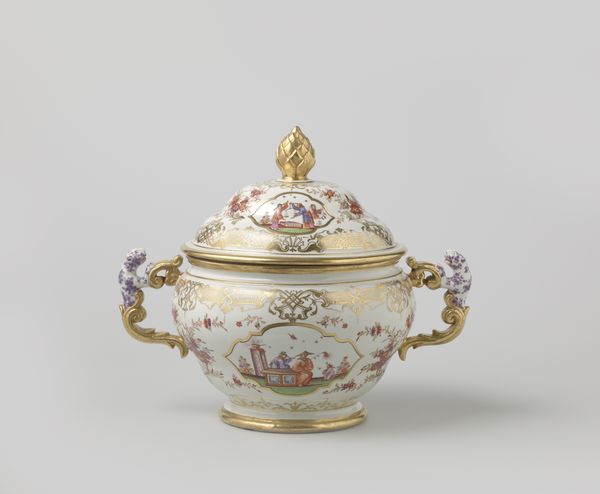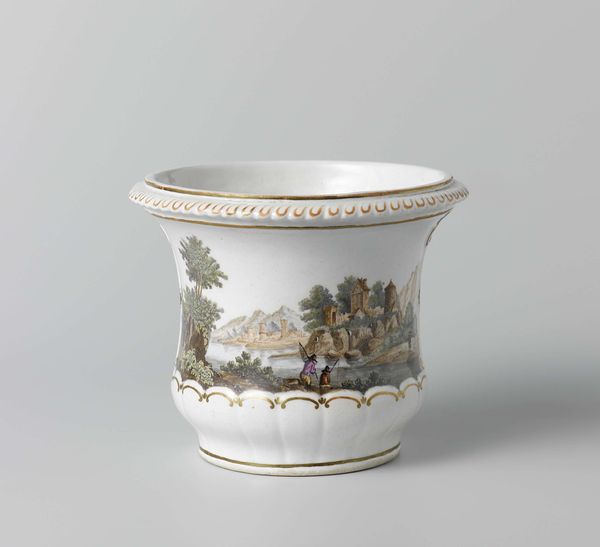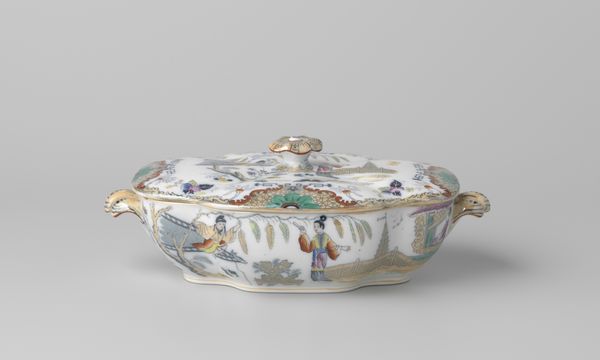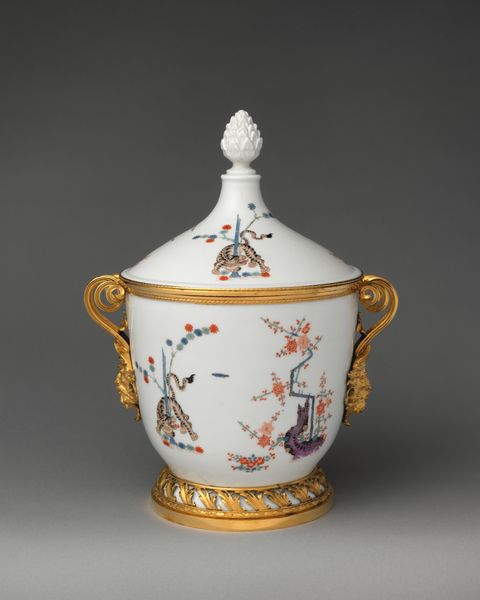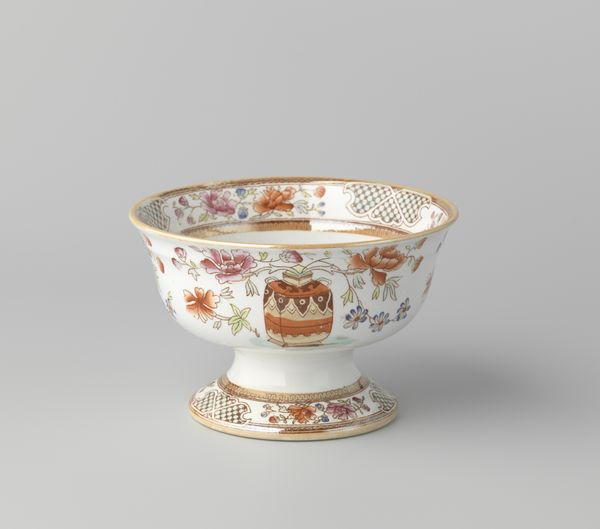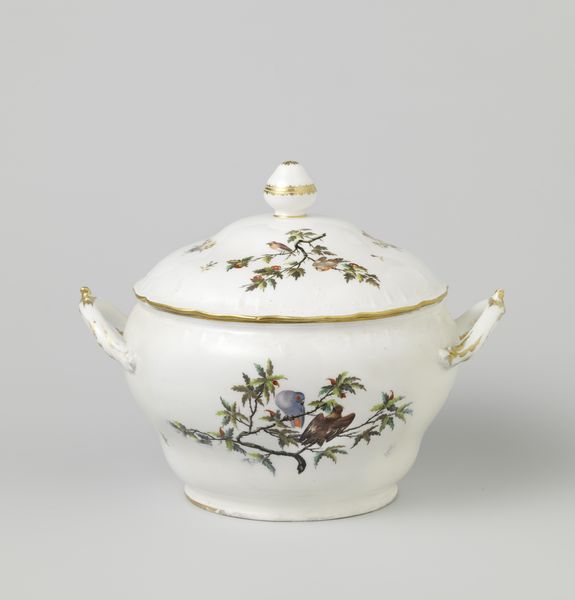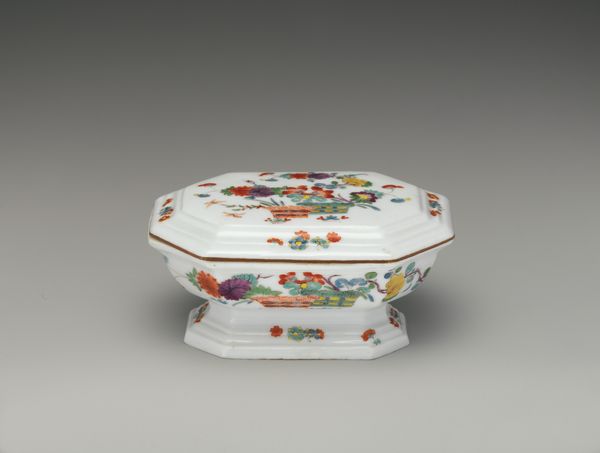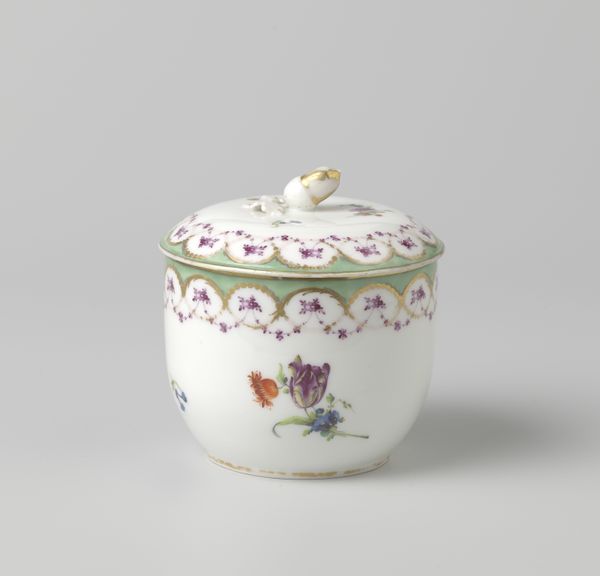
Suikerpot, beschilderd met een rivierlandschap met boerderijen en figuren before 1814
0:00
0:00
koninklijkeporseleinfabriekdommerco
Rijksmuseum
painting, ceramic
#
dutch-golden-age
#
painting
#
landscape
#
ceramic
#
ceramic
#
genre-painting
Dimensions: diameter 10.1 cm, height 8 cm
Copyright: Rijks Museum: Open Domain
Editor: We’re looking at a suikerpot – that’s sugar bowl in Dutch - created before 1814 by Koninklijke Porseleinfabriek Dommer & Co. at the Rijksmuseum. What strikes me is how a scene from everyday life has been so meticulously painted onto this delicate ceramic. What do you make of the contrast between fine porcelain and the humble river landscape it depicts? Curator: You know, it’s funny how objects like this act as time capsules. Here, on this delicate suikerpot, we see a slice of the Dutch Golden Age stubbornly persisting, a longing for simpler times perhaps even then. The contrast you pinpoint isn't accidental. Think of it: Sugar, itself a luxury item at the time, adorned with idealized peasantry. A pinch of sweetness layered with a certain… social commentary, don’t you think? Does it ring a bell? Editor: A bit, but I need more context. Were these landscapes common on ceramics? What purpose would this juxtaposition serve? Curator: Absolutely! Remember, porcelain was still quite precious, something to show off. Painting these tranquil scenes – think genre painting but miniaturized, portable – brought that ‘Golden Age’ landscape right into the home, almost like a curated window. As for purpose…it might have been a status symbol, demonstrating not only wealth but also taste and appreciation for a nostalgic vision of Dutch life, even while enjoying an exotic, imported treat like sugar! What’s your take? Editor: I didn’t consider that before! The sugar itself becomes part of the narrative, then. Thanks, it helps recontextualize the suikerpot. Curator: Exactly. You start seeing more than just pretty picture. It becomes an echo of a cultural moment, poured with every cup.
Comments
No comments
Be the first to comment and join the conversation on the ultimate creative platform.
